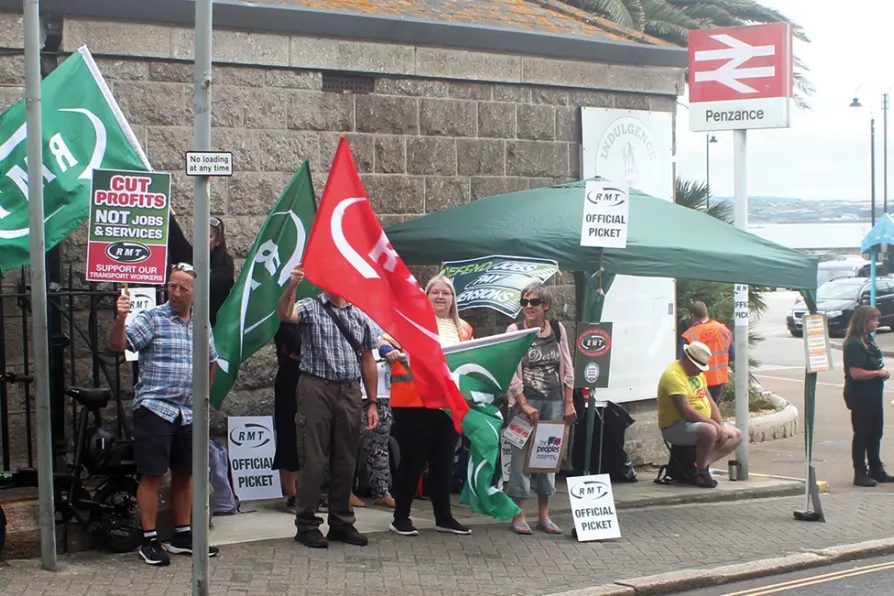Channel 4’s Dirty Business shows why private companies cannot be trusted with vital services like water, says PAUL DONOVAN

 GOING STRONG: A lively RMT picket in Penzance, west Cornwall
[Pic: Anthony Matthews]
GOING STRONG: A lively RMT picket in Penzance, west Cornwall
[Pic: Anthony Matthews]
CORNWALL does not have a strong history of organised, industrial militancy. In the 19th century the influence of Wesleyan Methodism became a dominant force in this tin mining region, and at a time when radical political movements and the strong growth of trade unionism was emerging in other mining communities throughout Britain, Cornish Methodism promoted an engagement with Liberal politics rather than trade unionism or socialism.
However, there were notable exceptions. William Lovett, a Cornish man from Newlyn, was the founding member of the radical working-class Chartist movement and the author of the movement’s influential document — the People’s Charter (1848).
And in 1840 Richard Spurr, a carpenter from Truro, was arrested while actively agitating for the cause of Chartism. Around the same period, it was reported in a Chartist publication that a meeting in Penzance of the Chartists movement had been so well attended that it caused serious alarm among the authorities. Despite these efforts, the Chartist movement failed to gain ground in Cornwall.

Since 2023, Strike Map has evolved from digital mapping at a national level to organising ‘mega pickets’ — we believe that mass solidarity with localised disputes prepares the ground for future national action, writes HENRY FOWLER
![Strike Map activists visit striking refuse workers in Birmingham, April 29, 2025 [Pic: Strike Map]]( https://msd11.gn.apc.org/sites/default/files/styles/low_resolution/public/2025-05/DSC_0753.JPG.webp?itok=UCYB6Qpj)
As Birmingham’s refuse workers fight brutal pay cuts, Strike Map rallies mass solidarity, with unions, activists, and workers converging to defy scab labour and police intimidation. The message to Labour? Back workers or face rebellion, writes HENRY FOWLER and ROBERT POOLE











